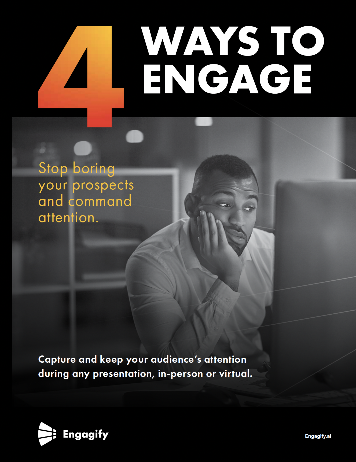A trade show invites great opportunities – and hard questions from the trade show attendees.
Especially if it’s your first time working a trade show booth, there may be questions that surprise or unnerve you. That’s why it’s best to prepare ahead of time.
Think about how you’ll answer important trade show questions now, so you’re cool as a cucumber at the show.
“That’s expensive. How do you justify the cost?”
Companies are budget-conscious, so the question of money will come up. Study how your product or service offers value. Explain how, even though there is an upfront cost, it will save and grow revenue revenue in the long-run.
For example, a CRM platform may sound costly, but the hours of organization, follow up reminders and lead generation it enables will more than cover the investment.
“It’s an interesting product, but it doesn’t really apply to me or my company.”
There are two angles here.
-
If they’re right; it’s not a good fit.
Make sure to ask about the person, their company and what it is they do. If they truly won’t benefit from your product or services, remember: It’s okay to say no and even refer them elsewhere. “You’re right; based on your needs, it doesn’t sound like we would be the best fit for you at the moment. I think (insert company or service) may actually be able to offer you the most value.”
The fact that you were honest, not pushy, and even offered a better solution is something they will remember. When they do know someone who is a better fit, they are likely to give a referral.
-
If you truly could benefit them.
If you really think your offerings can help, phrase that thought carefully. “I completely understand what you’re saying. Because you do (insert activity or business), I would recommend checking out this aspect of our offerings. Many of our clients in a similar field really love __(insert benefit)__ about it.”
“I’ve used the same provider for years. Why would I switch?”
Start by learning about their current provider in a polite way. “If I may ask, who is currently serving those needs?”
If you’ve done thorough competitor research beforehand, you’ll probably know at least a bit about that company – and the greater benefits yours has to offer. Share those benefits with them.
Remember this – do NOT bash the other company. It’s a firm they’ve trusted for a long time and saying negative things will only make the person defensive. Emphasize the positive, not the negative. “Yes, they are a great company, as well. They do a superb job. I will say, though, there are some other benefits we offer I think you’ll want to hear about.”
“It sounds great, thanks, but I just signed a deal with another company.”
As mentioned in the last question/answer, share benefits you have that the other company does not. Then, think of ways they can try or switch to your company instead. For example, does your company offer a switch program? This is where, if a client has already purchased something similar, a company offers to give a discount or partial refund based on the money they already invested in the other company. This is good for multiple reasons:
- It shows you’re customer service-oriented.
- It shows how much you believe in your product or service.
- Money becomes less of a reason they won’t switch.
Losing those initial funds provides greater opportunities to build more long-term relationships.
How to Prepare for Your Trade Show (and the Other Questions That May Arise!)
These questions may spark other topics or issues. Make extra sure your trade show booth team members are ready to convey the right message and convert the leads with professional trade show consulting.




